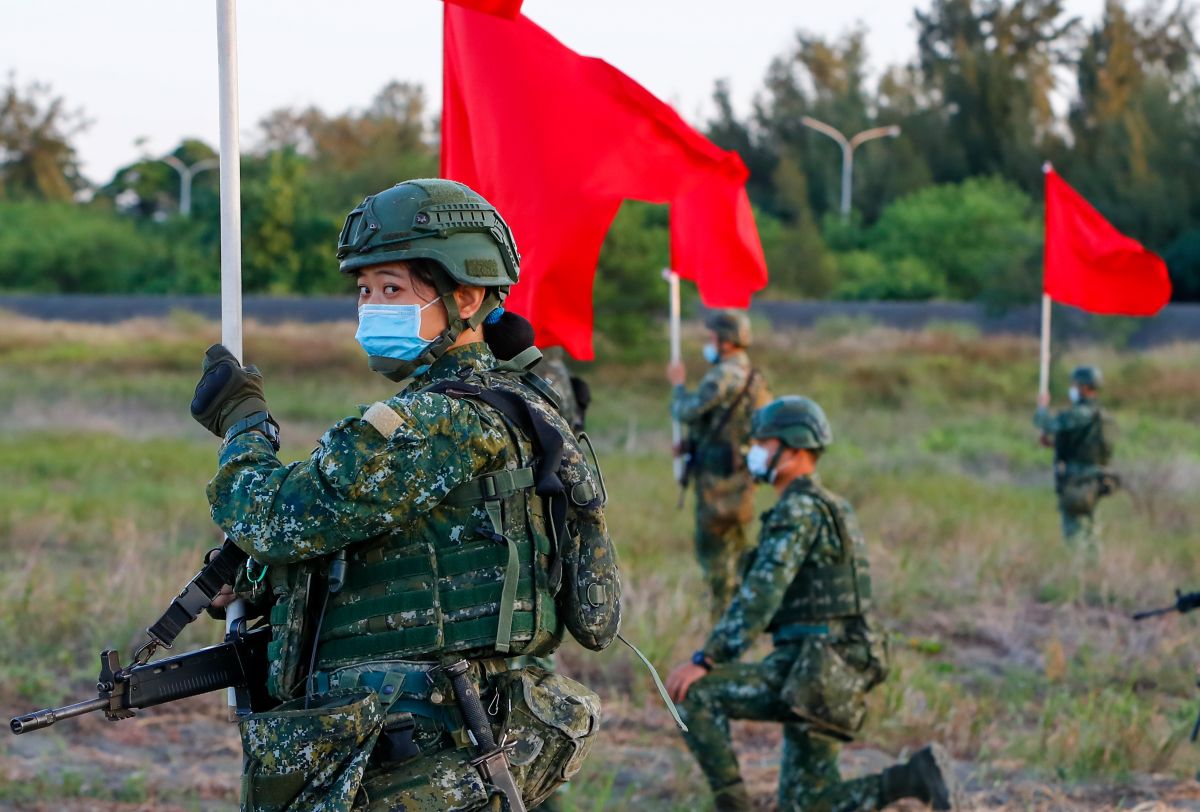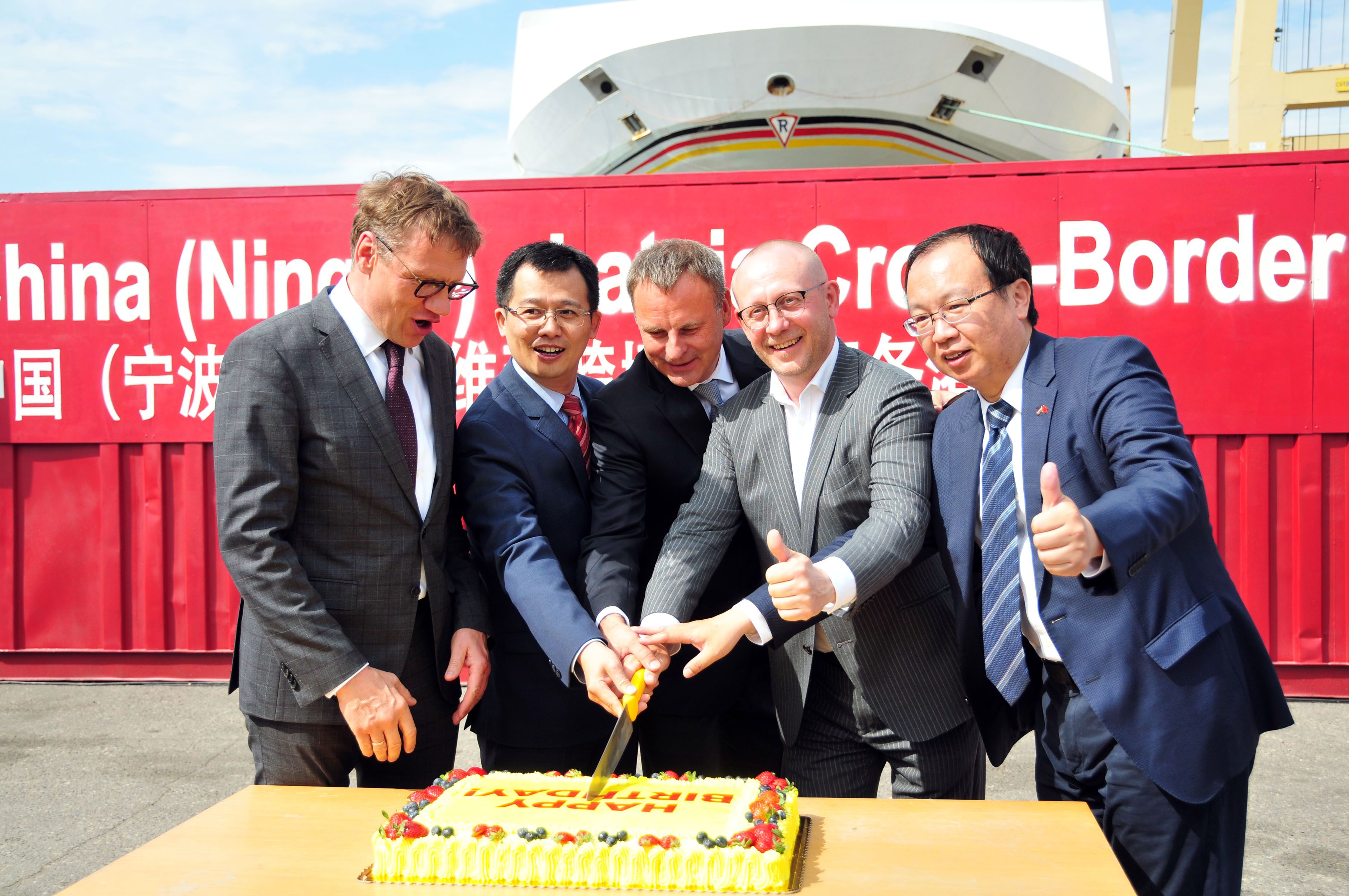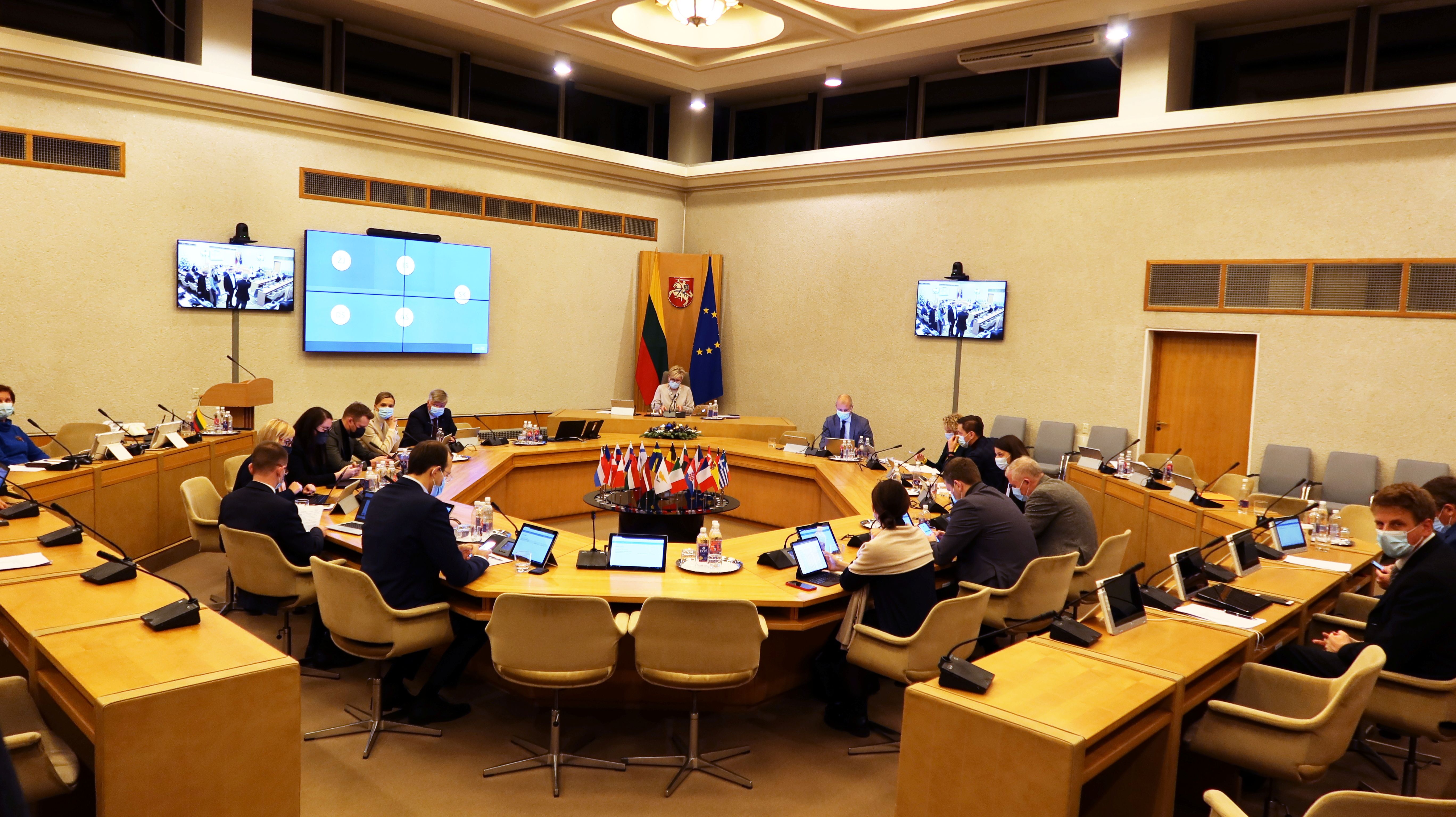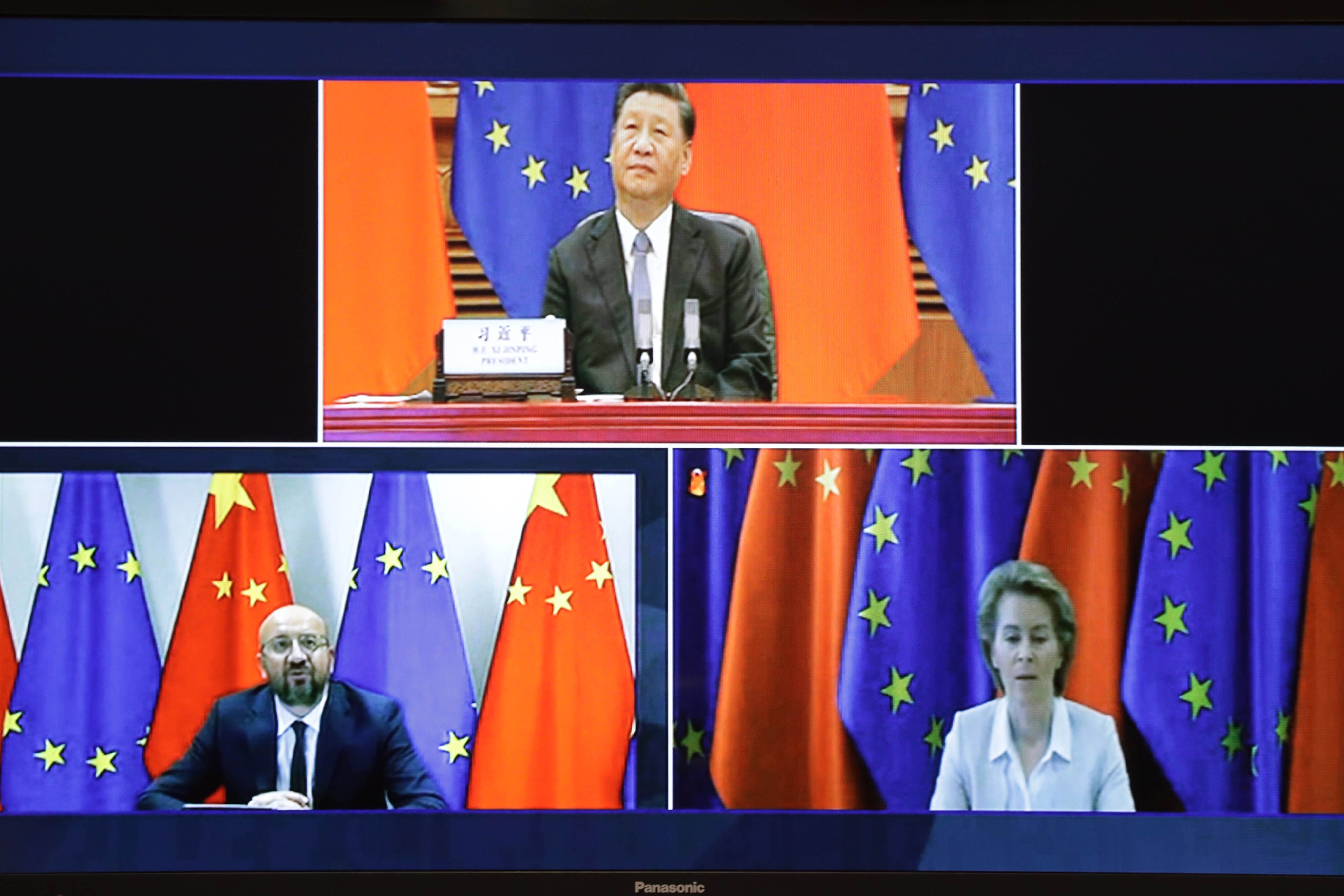Regression and Pro-Russia Rhetoric: China's Reaction to Lithuania's Change of Policy
 Photo: Daniel Ceng Shou-Yi/Zuma Press/Forum
Photo: Daniel Ceng Shou-Yi/Zuma Press/Forum
The determined Lithuanian policy towards China results mainly from the negative assessment of the actions of the Chinese authorities by the conservative-liberal coalition that took power in October 2020. The new government placed particular emphasis on strengthening the alliance with the U.S. while also underlining the importance of human rights, for example, in relation to the political repression in Hong Kong. Like its predecessors, the Lithuanian government criticises China’s cooperation with Russia, especially in the military sector, or the Chinese side’s appeals to the period of cooperation within the communist world when the Baltic States were occupied by the Soviets. It also negatively assesses the effects of Lithuania’s involvement in Chinese-led forums such as the “17+1”. At the virtual summit of the initiative in February this year, Lithuania was not represented by the president, though invited, but only by the transport minister. In May, it withdrew from the format, stating that it has not achieved its objectives, including a wider opening of the Chinese market. Although Lithuania does not maintain official diplomatic relations with Taiwan, in July it agreed to establish a representative office, without referring to the island as “Taipei”, the first in the world. It also donated free COVID-19 vaccines to the island (the first EU country to do so). China’s reaction to the Lithuanian actions, though, was more political than economic in scope.
Political Dimension
Since March, the one Seimis parliamentarian has been subject to sanctions imposed by China on the EU. In September, in response to information about the establishment of the representative office in Taiwan, China withdrew its ambassador from Lithuania and demanded that a Lithuanian diplomat of the same rank leave China. It sees Lithuania’s decision as a departure from the “One China” policy and as support for the independence aspirations among the authorities on the island, and also as proof of U.S. involvement in the rivalry with China.
Further expressions of Chinese dissatisfaction include statements by experts and party media suggesting the possibility that Chine may work with Russia and Belarus to “punish” Lithuania. According to these opinions, a common Baltic State policy should become an element of the Sino-Russian strategic partnership. This would serve to, among others, allow China in media or diplomatic statements to present Lithuania as a state hostile to Russia.
China is also trying to downplay the importance of Lithuania’s withdrawal from the “17+1” and demonstrate that it is a mere “incident” that can even help to intensify cooperation between remaining members by the removal of a state critical of the initiative. This conviction was presented by Chinese Chairman Xi Jinping in talks with the prime ministers of Greece (7 July) and Czechia (8 July). Both of the latter countries joined Croatia, Hungary, Poland, Serbia, and Slovenia in confirming their willingness to participate in the “16+1” (the group minus Lithuania). This was also the purpose of the October visit of Minister Wang Yi to, among other places, Greece and Albania.
Economic Issues
China also is retaliating economically against Lithuania. This mainly includes creating difficulties in the certification of goods or pressure on Chinese companies to stop working with Lithuanian partners. This retaliation is, however, limited in scope given the relatively low involvement of China in the Lithuanian economy. In 2020, China was 22nd in exports (same as in 2019), and 7th in imports (up from 9th in 2019). The first months of this year showed the limited effectiveness of China’s attempts at economic retaliation, as from January to August its trade with Lithuania actually increased by 21% compared to the corresponding period of 2020, though this is partially a year-on-year base effect. Also, Chinese foreign direct investment (FDI) is of marginal importance to Lithuania and in 2020 accounted for less than 2% of all FDI. Some projects, such as the extension of the Klaipeda port, were suspended by the Lithuanian authorities in part due to the perception that entities from China expressing interest in the port could be a threat to national security.
Rail transport is important in the bilateral economic relations. The value of goods transported by rail from China in 2020 was five times higher than the year before. The Chinese authorities have tried to use this and other means to pressure Lithuania, suggesting a complete suspension of cargo transports from China. Ultimately, the Chinese authorities stopped some of the transports, but others are still operational, such as trains to Kaliningrad. Although the value of transported goods fell in August this year, it already started to rise again in September.
Importance of the EU and the U.S.
For China, the change in Lithuania’s attitude holds risk mainly in the context of its influence on EU policy, especially the bloc’s contacts with Taiwan. In recent months, Lithuania, as well as Slovakia and Czechia have backed closer cooperation with the island. This is mainly because of their negative assessment of China’s policy towards the EU. In October, the Taiwanese foreign minister paid unofficial visits to, among others, Slovakia and Czechia, as well as to Brussels, where he met with a group of MEPs. Additionally, a business delegation headed by the head of the National Development Council visited Lithuania, Slovakia, and Czechia. In the same month, the European Parliament (EP) adopted the first-ever report calling on the European Commission to strengthen relations with Taiwan, and in November a delegation of MEPs visited the island.
China is trying, mainly through bilateral contacts with EU members, to neutralise Lithuania’s ideas on the EU forum regarding strengthening transatlantic cooperation and others. China appeals to common economic interests with the EU and the need to remain committed to the “One China” policy. The approach of the EU institutions and Member States to China’s actions towards Lithuania has been ambiguous. The European Commission criticised the departure order regarding the Lithuanian ambassador to China. The prime minister of Slovenia, which took over the presidency of the EU Council in July, expressed support for Lithuania. At the same time, some EU countries, including Estonia and Poland, as well as the EU institutions, offer nuanced positions that support Lithuania’s policy on China while distancing themselves from the intensification of relations with Taiwan. Such an approach was also presented during the EU-China strategic dialogue in September by the High Representative for Foreign Affairs and Security Policy Joseph Borrell. In August, U.S. Secretary of State Antony Blinken also expressed support for Lithuania and the U.S. willingness to coordinate actions towards China. Lithuanian policy is in line with American support for Taiwan and is an opportunity to strengthen transatlantic cooperation. In the same month, a joint statement supporting Lithuania was issued by the heads of parliamentary foreign affairs committees, including from the U.S., France and Germany.
Conclusions
The change in Lithuanian policy limits China’s ability to present relations with Central European countries as a political success of the Chinese Communist Party leadership. The negative assessments of the effectiveness of the “17/16+1” format by other countries (including Estonia and Latvia) strengthens this impression. Therefore, China will focus on cooperation with partners with a positive attitude towards it—Hungary, Greece, and the Balkan countries. In this context, the policy of balance pursued by Poland seems to be positively received by China. At the same time, China will emphasise the importance of multilateral cooperation with the entire region, but not strictly through the “16+1”, which in name alone refers to Lithuania’s decision not to engage in this format.
China’s priority is to prevent the intensification of EU-U.S. relations with Taiwan, as it directly strikes at the Chinese rhetoric of imminent reunification with the island. The limited possibilities of putting pressure on the countries of Central Europe will mean that China will continue to try to reduce the influence of Lithuania, as well as Slovakia and Czechia, on EU policy. This pressure will be applied in direct contacts with the European Commission, Germany, and France, for example, through threats to strain economic relations to a much more advanced degree than with Lithuania. Meanwhile, the EU may find it’s the right time to reduce its economic interdependence with China through increased cooperation with Taiwan, such as its interest in diversifying supply chain host countries, which is also in the interest of Central Europe, including Poland. Taiwan has already offered support to Lithuania on the development of its semiconductor sector. In this context, taking into account some of the Lithuanian suggestions to the Union, mainly the economic ones, could have positive long-term effects, such as ensuring access to semiconductors and limiting the costs of possible Chinese retaliation.





